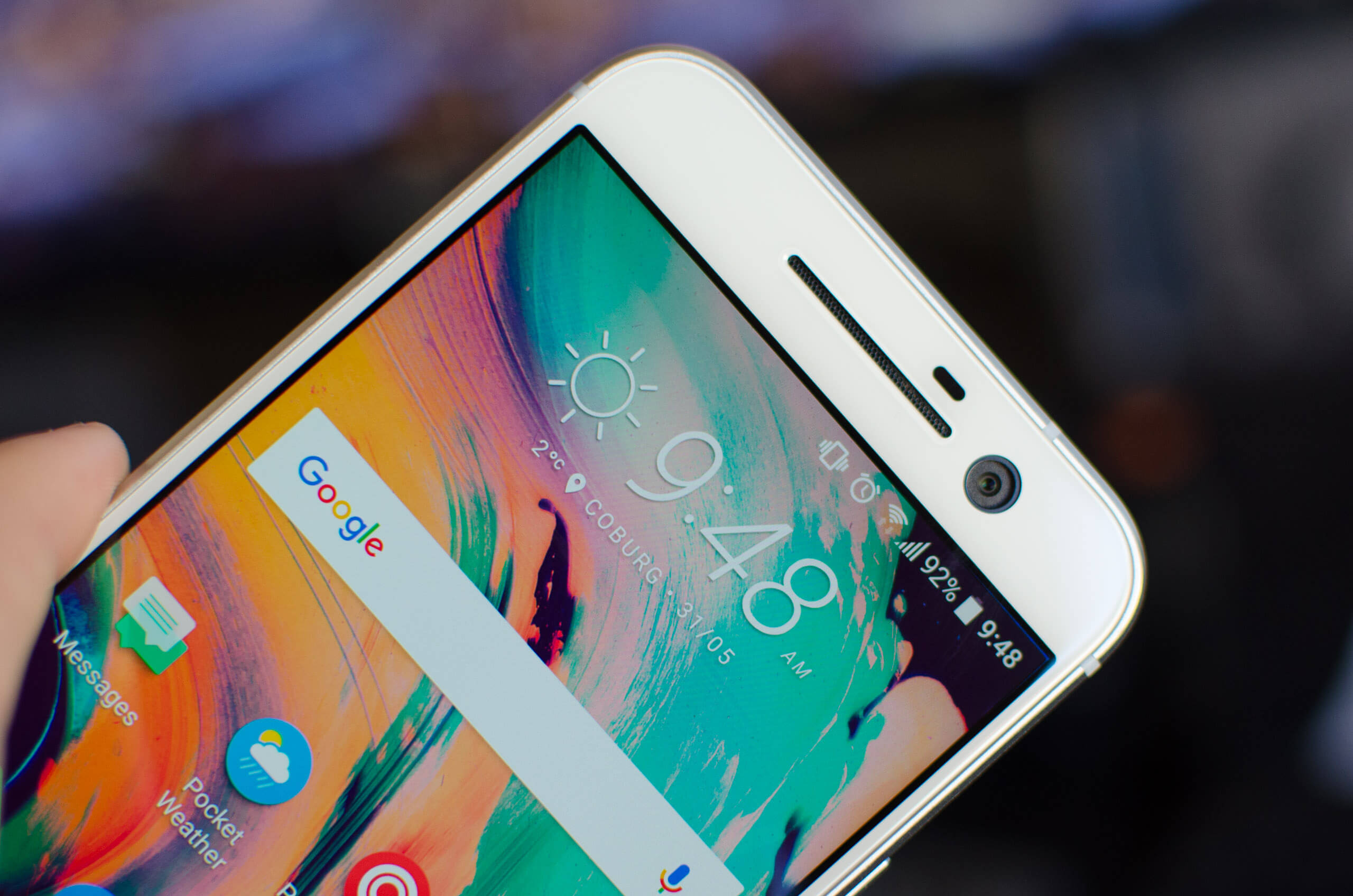Camera
HTC has listened to mountains of complaints about the camera in their previous smartphones, which is why the HTC 10 includes a well-known and high-end camera system featuring a 12.3-megapixel Sony Exmor IMX377 CMOS sensor on the back. This sensor is 1/2.3" in size and features 1.55 µm pixels, and it's paired with an f/1.8 lens, optical image stabilization, laser-assisted autofocus, and a dual-LED two-tone flash.
The IMX377 is pretty familiar considering it was included with the Nexus 5X and Nexus 6P, but in the HTC 10 we're seeing better light-gathering optics thanks to OIS and the wider f/1.8 lens. The camera is capable of 4K recording as you'd expect.
On the front is a 5.0-megapixel Samsung S5K4E6 CMOS sensor, which is 1/4" in size and features 1.34 µm pixels. It's also paired with an f/1.8 lens and, surprisingly for a selfie camera, optical image stabilization. HTC has realized that many people take selfies in poor lighting, so the inclusion of OIS and a wide lens will theoretically help prevent blurry selfies taken at night.
Both cameras are native 4:3, and the camera app is set up to shoot in 4:3 by default. You can switch to 16:9 but I don't see why you would. The camera interface is straightforward, with obvious shutter, video, and switch-to-front buttons. HDR is implemented automatically - a feature I love about smartphones - and the capture speed is quick. If anything, I was disappointed by how slow and sporadic the focusing system is: for a camera with laser autofocus I was expecting better and more accurate results.
Extra modes are hidden in a slide-out draw, including a full manual mode that shoots RAW images and gives users full control over white balance, ISO and exposure. It's a great mode if the auto mode isn't quite delivering the results you were after. HTC hasn't included any crazy additional modes in here, although Zoe mode (short video snippets with each image capture) has returned, and there's basic panorama, slow motion video, and hyperlapse modes.
The quality of the HTC 10's rear camera is good without being amazing. No doubt this is the best smartphone camera HTC has ever included in their smartphone, and it's a big step up from the One M8 and One M9, but there are still a few issues that keep it from being as good as I've seen from either the Galaxy S7 or LG G5.
I'll start with the positives though, which mostly relate to the inherent qualities of the sensor. Even though this is just a 12-megapixel shooter, detail is fantastic and most images I captured were extremely sharp. HTC's post processing does not apply aggressive noise reduction filters, so there are no weird artefacts or painting-like effects when viewing 100% crops. Due to the lack of strong noise reduction, grain does get introduced in low-light images, but not to the extent that images are ruined and I far prefer the level of detail that's preserved across the board.
HTC has clearly focused on accuracy with this camera's processing, so images taken look very true to life when viewed on a color-accurate display. You don't necessarily get the same level of color vibrancy as the G5 or Galaxy S7 provides - images don't 'pop' to the same degree - however I appreciate the accuracy.
The downside to this sort of processing is that, in general, images produced by the G5 or Galaxy S7 look better straight off the camera. With the HTC 10, I could definitely edit the photos to look amazing, but sometimes I just want the best image from the get go. Purists will love the accuracy that the 10 provides, however I feel the majority of users will prefer the awesome results other flagships currently deliver.
These photos were taken in poor indoor lighting. The G5 produces a superior image, while the HTC 10's image is closer to 'reality'
That's not to say that images taken with the HTC 10 look bad because of the focus on accuracy. I've taken some really awesome photos with this camera, and that's not something that was possible with previous-generation devices from the company.
I do have some issues with aspects of this camera without considering the competition. The lens in particular seems pretty cheap, leading to a reduction in quality around the edges of images. In some situations this isn't noticeable, but in high-glare conditions (such as strong backlighting or high contrast environments), the edges of images can easily be washed out. At night, the issue manifests itself as a significant glow around bright objects, which impacts this camera's low light performance.
This photo was captured by the HTC 10 in decent indoor lighting. You'll notice the image appears washed out and lacking in contrast around the edges, particularly on the right and bottom sides, compared to the center of the image.
Low light performance in general was a bit hit or miss due to the glow issue. The sensor in the HTC 10 is the same as the Nexus 6P, and I was more impressed with how the 6P handles low light, despite the HTC 10's supposedly better low-light hardware (like a wider aperture and OIS). The HTC 10 does like to use very high ISOs, so has a better ability to 'see in the dark', though often these images are very grainy.
There were also some times where I took a photo in good conditions and the result was inexplicably dull and lacking in dynamic range. This camera generally has pretty good dynamic range, so these occasional dud photos are a bit odd.
The selfie camera is good, and can take good photos, but I was disappointed in its low light performance considering the wide aperture and OIS that's included with this camera. I didn't really see anything that indicated this camera is any better than competitors in darker situations, and there's still a lack of detail in these photos.















